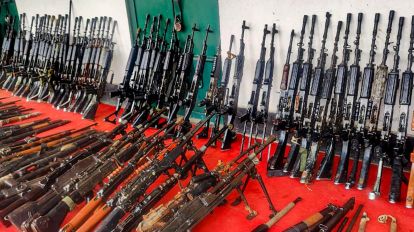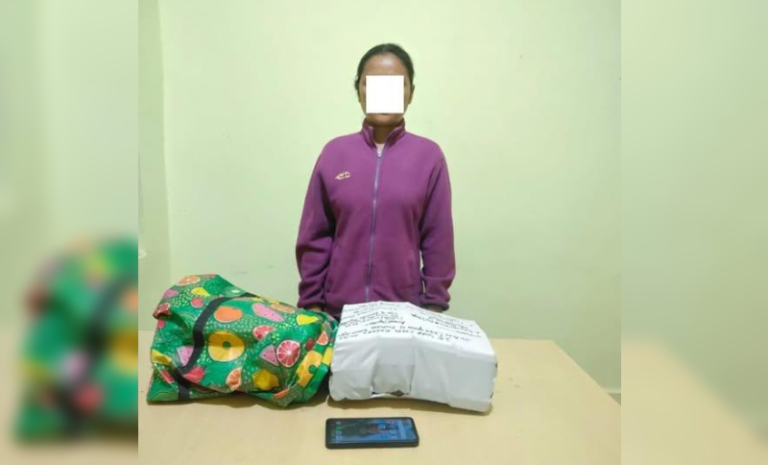Khaidem Mani and AMMOCOC’s Appeal for the Release of Captives in Manipur
Summary
Prominent advocate Khaidem Mani and the All Manipur Muslim Organisation Coordinating Committee (AMMOCOC) have urged Kuki militants to release six captives, including minors and women, in Jiribam. Amidst prolonged community conflict, Mani expressed deep concern over the deteriorating situation in Manipur and the state’s fragmented political landscape. Both Mani and AMMOCOC stressed the urgent need for action, appealing to the government to facilitate the safe return of the captives.
Full Article
Understanding the Captive Crisis in Manipur
As Manipur’s prolonged conflict deepens, calls for peace are more urgent than ever. The recent appeal by Khaidem Mani and AMMOCOC shines a spotlight on a troubling reality—civilians held captive amidst ethnic tensions. With ongoing divisions among communities, the appeal reflects the need for unity and compassion during this humanitarian crisis.
The Catalyst: What Prompted the Call?
The situation became even more dire with reports of the detention of three minors and three women in Jiribam by alleged Kuki militants. In response, prominent advocate Khaidem Mani, supported by AMMOCOC, expressed concern over the state’s inability to protect civilians and demanded the immediate release of those held captive.
Khaidem Mani’s statements highlight a sense of despair over the lack of governance in several districts, where territorial and ethnic divides have contributed to a lawless environment. The absence of government protection in regions such as Churachandpur, Kangpokpi, and Tengnoupal underscores his concern over safety and community sovereignty.
Political Division and Its Impact on Governance
Mani also touched upon a core issue that’s further complicating Manipur’s conflict—the ethnic divide among its elected officials. He questioned why the state’s MLAs are often categorized by their community affiliation, such as Naga, Kuki, or Meitei, rather than being united under the banner of “Manipur Legislative MLAs.” This separation among representatives mirrors the broader divisions that continue to fuel the crisis, with each faction focusing more on community interests than state-wide peace.
AMMOCOC’s Role in the Appeal
Representing the Pangal (Muslim) community of Manipur, AMMOCOC’s involvement in the appeal brings a unique perspective. SM Jalal, the AMMOCOC president, emphasized the tragedy of prolonged captivity and urged for compassion and peace-building efforts. Highlighting the broader impact of the ongoing turmoil on civilians, he called upon the state government to prioritize the rescue of these individuals. The joint appeal by AMMOCOC and Khaidem Mani signifies a rare moment of solidarity among Manipur’s diverse communities, standing together to demand action for the captives’ release.
Challenges of Territorial Integrity and Peace in Manipur
Manipur’s complex social fabric is woven with multiple communities, each with its own unique history and territorial claims. The calls for the release of captives not only underscore the urgent need to address human rights but also question the current state of governance. Mani’s criticisms of the lack of control in certain districts raise valid concerns: how can Manipur maintain its territorial integrity if certain areas remain inaccessible and lawless?
The government’s approach to this crisis will likely determine the state’s stability in the coming months. By addressing the human rights concerns highlighted in this case, Manipur’s leaders could set a precedent for peace and protect the state’s territorial unity.
A Path Forward: The Role of Dialogue and Mediation
Manipur’s complex conflict requires more than just security measures—it calls for a sustained effort to rebuild trust across communities. Dialogue, however difficult, remains essential. The joint appeal by Mani and AMMOCOC offers a glimpse of what cross-community solidarity might achieve if leveraged toward constructive solutions.
For the state to move forward, Manipur’s leaders will need to prioritize security for all communities, ensure justice for those affected, and facilitate open communication channels. Without addressing these issues, the cycle of division and distrust may continue, affecting generations to come.
FAQs
- Who are the captives mentioned in the appeal?
Six individuals, including three minors and three women, are reportedly held captive by Kuki militants in Jiribam. - What are Khaidem Mani’s main concerns?
Mani is concerned about the lack of governance in certain districts and the political division among MLAs, which he believes undermines Manipur’s stability. - How is AMMOCOC involved in this issue?
Representing the Pangal community, AMMOCOC is advocating for the release of captives, emphasizing humanitarian and peace-building efforts. - What steps have been proposed to address this crisis?
Mani and AMMOCOC are urging the government to take necessary action to ensure the captives’ safe return. - What impact does this situation have on Manipur’s future?
The incident highlights ongoing divisions that could hinder peace and territorial unity, emphasizing the need for political and social reforms.




